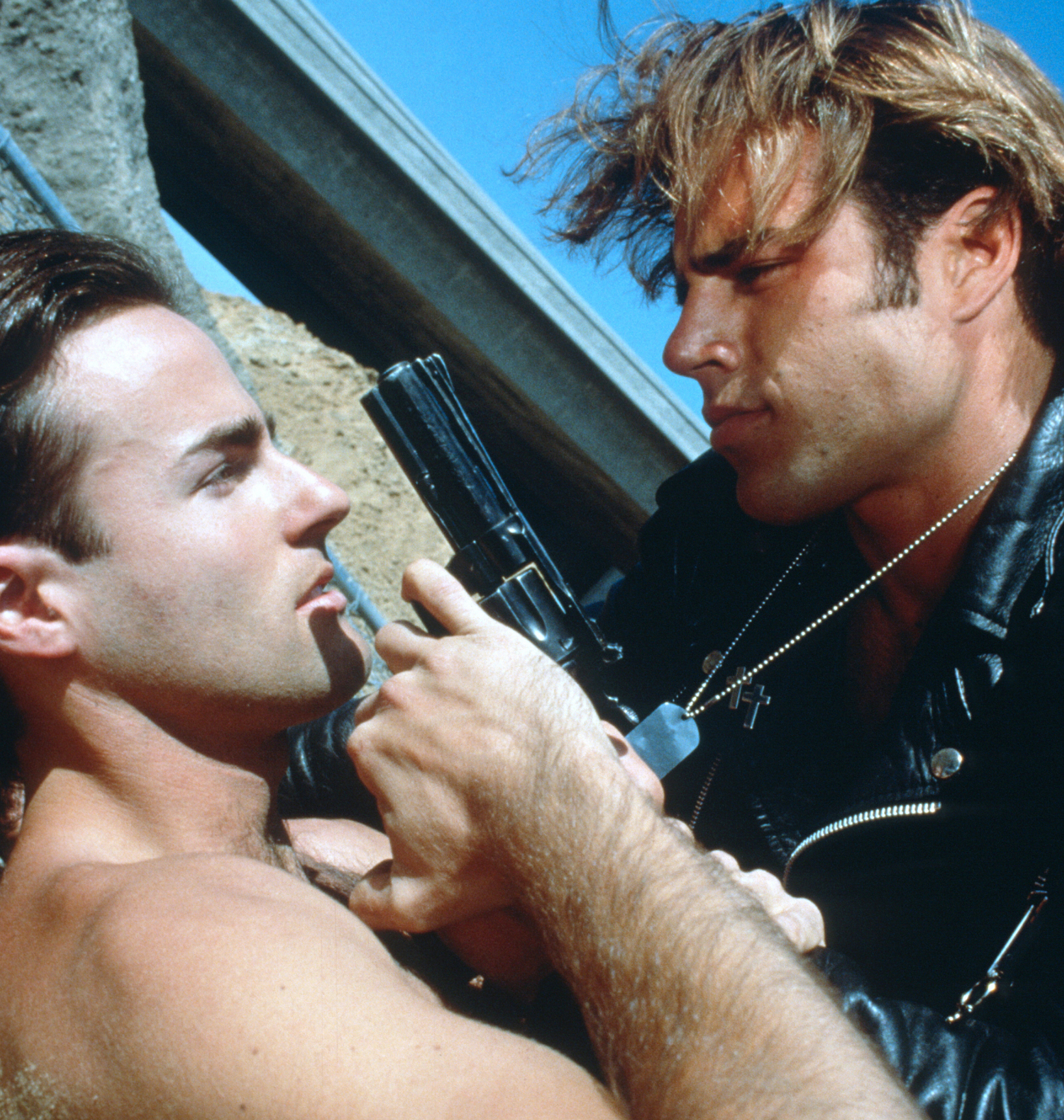UCLA Film & Television Archive to screen “˜New Queer Cinema’ film series

UCLA Film and Television Archive
March 25, May 12 and June 3
Billy Wilder Theater, FREE
By Kelsey Rocha
March 19, 2012 11:14 a.m.
Correction: The original version of this article contained multiple errors. The series of new queer cinema classics will be shown at UCLA’s Billy Wilder Theater starting Sunday. All three screenings will feature post-film Q&A’s between the filmmakers and the audience. One of the films, Gregg Araki’s “The Living End,” features the story of a confidence man and a film critic, both of whom are HIV positive.
In the early ’90s, a new breed of film was born. These films were brash, audacious and stylish, making their debuts at independent film festivals like Sundance.
The most striking aspect of these films was that they featured lesbian and gay protagonists. Film critic B. Ruby Rich coined this genre “New Queer Cinema.”
The UCLA Film and Television Archive, with the support of the Andrew J. Kuehn Jr. Foundation, is screening a special series of new queer cinema classics at UCLA’s Billy Wilder Theater starting Sunday. Though the archive often features lesbian, gay, bisexual and transgender films, Shannon Kelley, the chief curator for the series, said that it wanted to highlight the traditions within queer cinema.
“These LGBT films were offering pictures of queer lives and queer ideas that were counter-cultural, but at the same time were beautiful and beautifully constructed, and were worthy of serious critical attention,” Kelley said.
According to Rich, LGBT films were lacking prior to their cinematic movement in the early ’90s. In other pictures, these individuals were often misrepresented and stereotyped.
According to Rich, the LGBT community was in a time of crisis as it faced frequent criminalization. This was epitomized in one instance by the Bowers v. Hardwick court case in which the Supreme Court upheld anti-sodomy laws.
Additionally, the government and media exhibited a blatant disregard for those affected by HIV and AIDS by neglecting to invest in research or to inform the public of the epidemic, Rich said.
Independent filmmakers, fueled by the social and political injustices to the queer community, began producing films which would later become the basis for the film movement known as new queer cinema.
“It was a kind of filmmaking by people who were just desperate to get these ideas and lives out there, because people were dying by the droves,” Rich said.
Will Gorges, chairman of the Andrew J. Kuehn Jr. Foundation, said that the foundation advocates art that exposes people to aspects of life that maybe they knew nothing about before viewing the pieces.
“With films that open your mind and help understand a full spectrum of people, maybe things like this can be prevented in the future,” Gorges said in reference to the recent Spy-cam hate crime that took place at Rutgers University in New Jersey.
The next film featured in the series will be Gregg Araki’s “The Living End” on Sunday. The film is noted for its stylish and audacious nature. It features the story of a confidence man and a film critic, both of whom are HIV positive, who embark on a hedonistic road trip together.
Director and writer Gregg Araki, in addition to co-stars Mike Dytri and Craig Gilmore, will present opening remarks to introduce the picture.
Future screenings for the series include Todd Haynes’ “Poison” on May 12 as well as Christopher Munch’s “The Hours and Times,” and Jean Carlomusto’s “L is for the Way You Look,” which will screen on June 3.
In addition to the film, viewers can attend a Q&A between Haynes, Rich and Munch. According to Kelley, this film series presents students with an art form that can also inspire action.
“We’re very into film art, but we’re also into film art that moves people and budges them out of complacency. When that can be done in an entertaining way, that’s really something to celebrate,” Kelley said.


